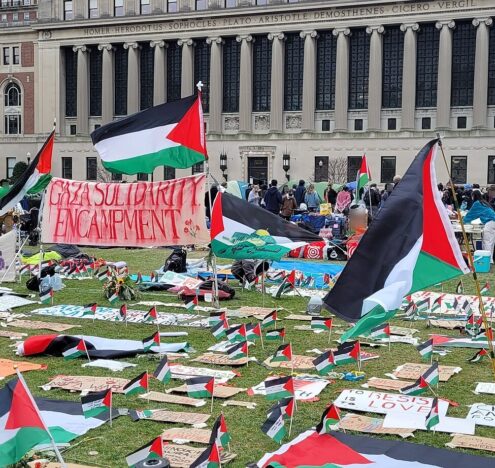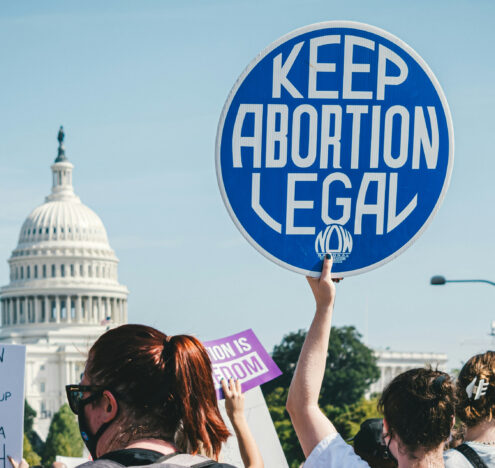Community trauma has once again erupted into mass slaughter and war in the Holy Land. I mourn and weep for all who are suffering and had their lives taken by the recent horrors of violence and war. These include both Hamas’ deadly attacks and the taking of hostages on Oct. 7, 2023, and Israel’s retaliatory violence on the people of Gaza. We are challenged to respond to conflict in accord with commitments to human dignity, to just peace, and to accountability rather than retribution.
We will need what Pope Francis has called “gestures of humanity” to break the cycles of dehumanization and violence. For example, Cardinal Pizzaballa OFM, the Latin Patriarch of Jerusalem, offered himself to Hamas in exchange for the children taken hostage. He offered to risk his own life to protect people without killing others. We need many more concrete, creative gestures by our religious and political leaders to shift the energy and dynamic of hostility.
A Just Peace Approach
A just peace approach is a framework or process of cooperation for the common good, the prevention of violence, and a focus on the transformation of conflict. The approach is rooted in just relationships and societal systems that respect the dignity of all people and the earth. It includes action-guiding norms related to three categories: 1) engaging conflict constructively, 2) breaking cycles of violence, and 3) building sustainable peace.
At this stage in the conflict, it would be wise to focus on breaking the cycles of violence. For instance, a just peace approach would include re-humanization of all the parties involved, rather than calling persons or groups “human animals,” “evil,” or denying the humanitarian crisis. Re-humanization and human rights call us to prioritize robust humanitarian aid and extensive, safe corridors to evacuate the elderly, people with disabilities, children, and others seeking safety.
Calls for “proportional” violent responses will only continue the war, cycles of violence, and trauma. Whereas a just peace approach oriented by human dignity will more likely interrupt the dynamics of violence and trauma.
The just peace norm of conflict transformation focuses on engaging the stakeholders in relentless negotiations with the help of credible messengers, such as particular country leaders, religious leaders, other civil society leaders, family members, etc. This would include focusing on who has leverage with Israeli leaders and with Hamas leadership, and then mobilizing them to influence these leaders toward de-escalation, a ceasefire, and accountability. For example, Qatar’s mediation resulted in Hamas releasing four hostages. Such negotiations could include a focus on the release of hostages, perhaps with some exchange of people detained or other incentives.
This norm would also include independent initiatives to repair and build trust, such as offering medical care for all in need rather than cutting off electricity, food, and water. Initiatives to offer trauma mitigation across society, including leadership, would also be constructive. President Hassan Abbas’ Oct. 17 call for three days of mourning due to the airstrike of a major hospital in Gaza is one example.
The just peace norm of acknowledging responsibility for harm would also help to shift the dynamic if political leaders or notable civil society leaders would start to model such acknowledgment, even on a small scale at first. This could include key stakeholders to the conflict expressing regret for the killing of civilians or acknowledging responsibility for harm to the community. Previous examples of such steps include both the African National Congress and South African President Frederik Willem de Klerk acknowledging responsibility for harm in the 1990’s during apartheid.
Other strategic negotiations with the right credible messengers could focus on handing over or detaining those responsible for harm (in Israel and Gaza) as a step toward accountability. That may take time, persistence, and creativity, but it is worth it. For example, the Taliban offered to detain Osama Bin Laden after the attacks on Sept. 11, 2001. Yet, the George W. Bush administration refused and we got 20 years of war in Afghanistan. Then and now, retribution is not accountability. Mass slaughter and collective punishment are not accountability. In fact, such practices only increase the likelihood of “recidivism” and cycles of violence and, thus, generational trauma.
Interrupting the Cycles of Violence
By slowing things down rather than reacting out of anger and trauma, we can find a way through this together. As we interrupt the cycles of violence, we can better lean into the root causes and how we build a more sustainable just peace. For example, political and religious leaders taking the initiative to call for a just peace summit to address and work through the root causes of this violence will be critical.
In contrast, if we continue to send weapons to a war zone, we will increase the dehumanization, destruction, and trauma of the community. Yes, all of us have a right of defense. Yet, how we choose to defend ourselves can either perpetuate cycles of violence and trauma or it can break cycles of violence and trauma. Calls for “proportional” violent responses will only continue the war, cycles of violence, and trauma. Whereas a just peace approach oriented by human dignity will more likely interrupt the dynamics of violence and trauma.
Thus, I call on the American public to implore President Joe Biden and the US Congress to focus on these gestures of humanity and a just peace approach. That is the way to illuminate dignity and generate accountability.





















